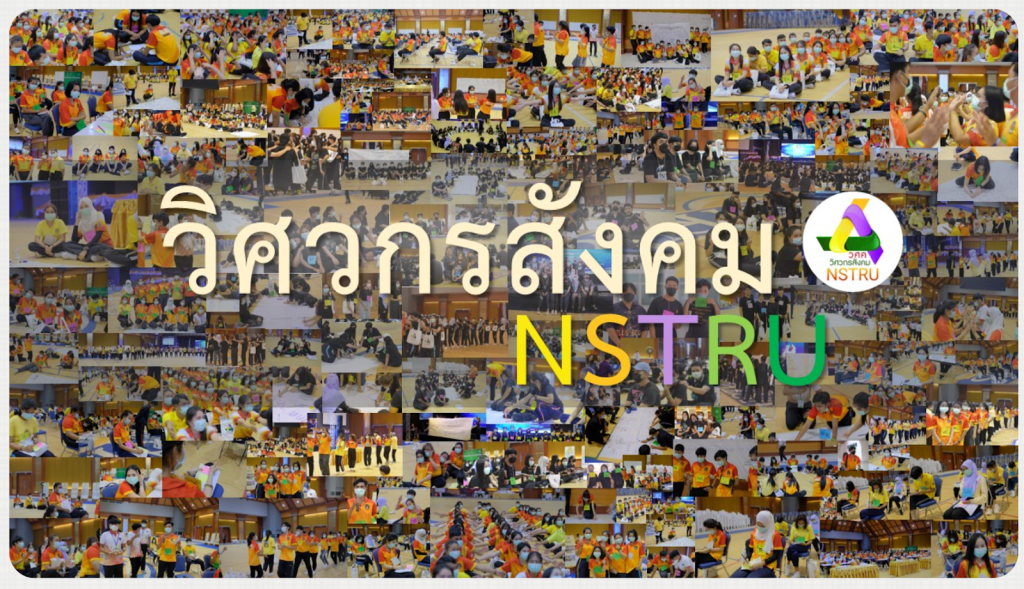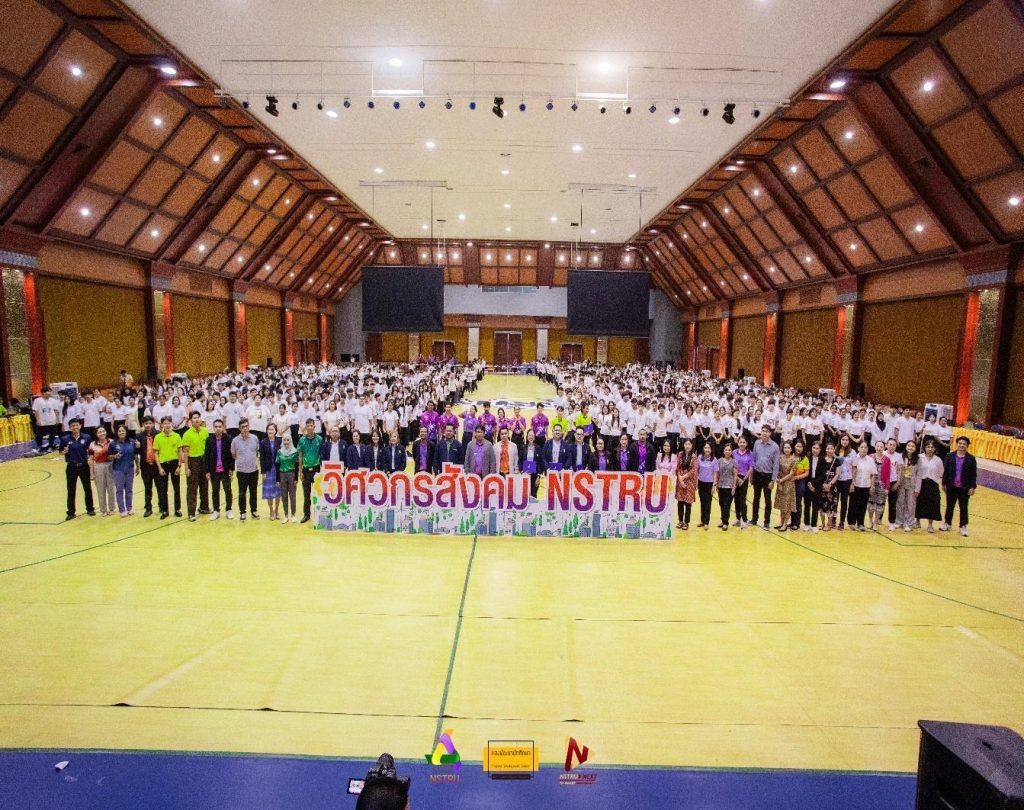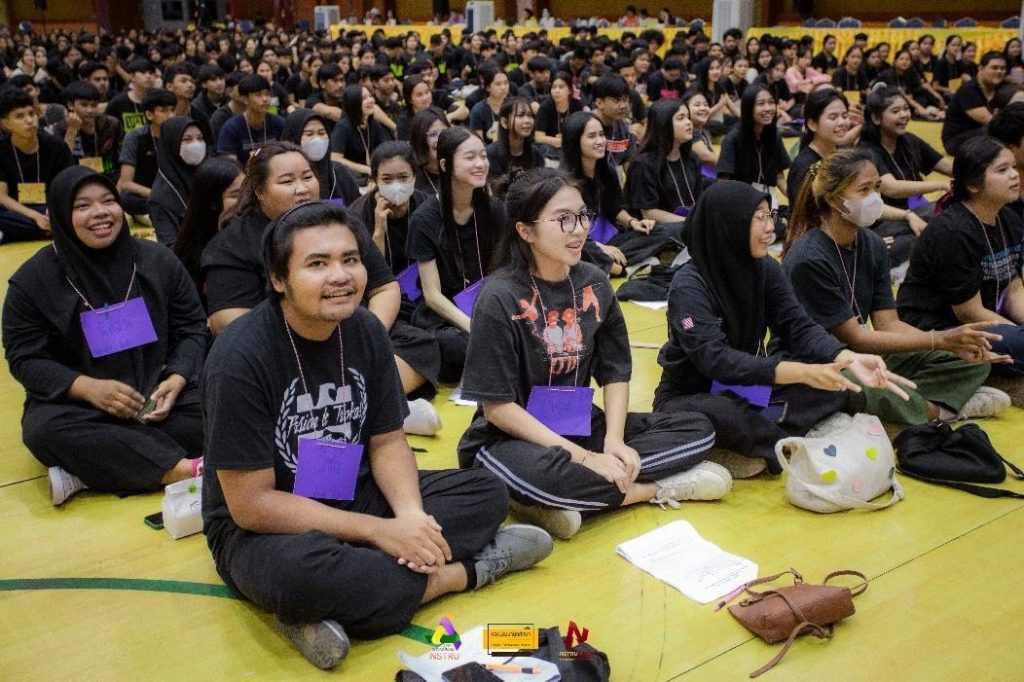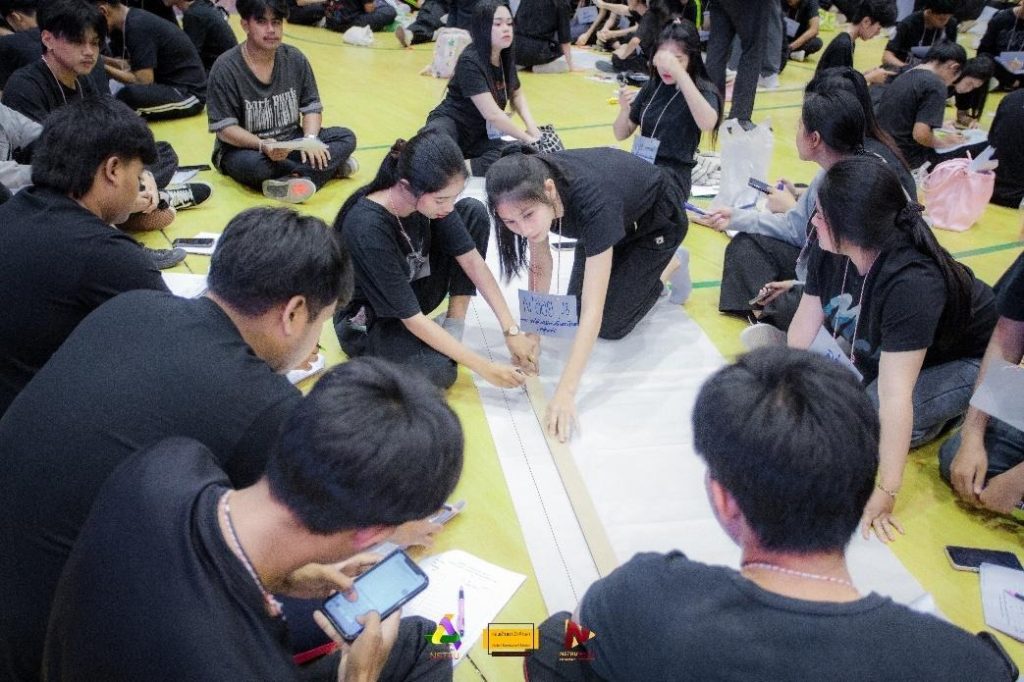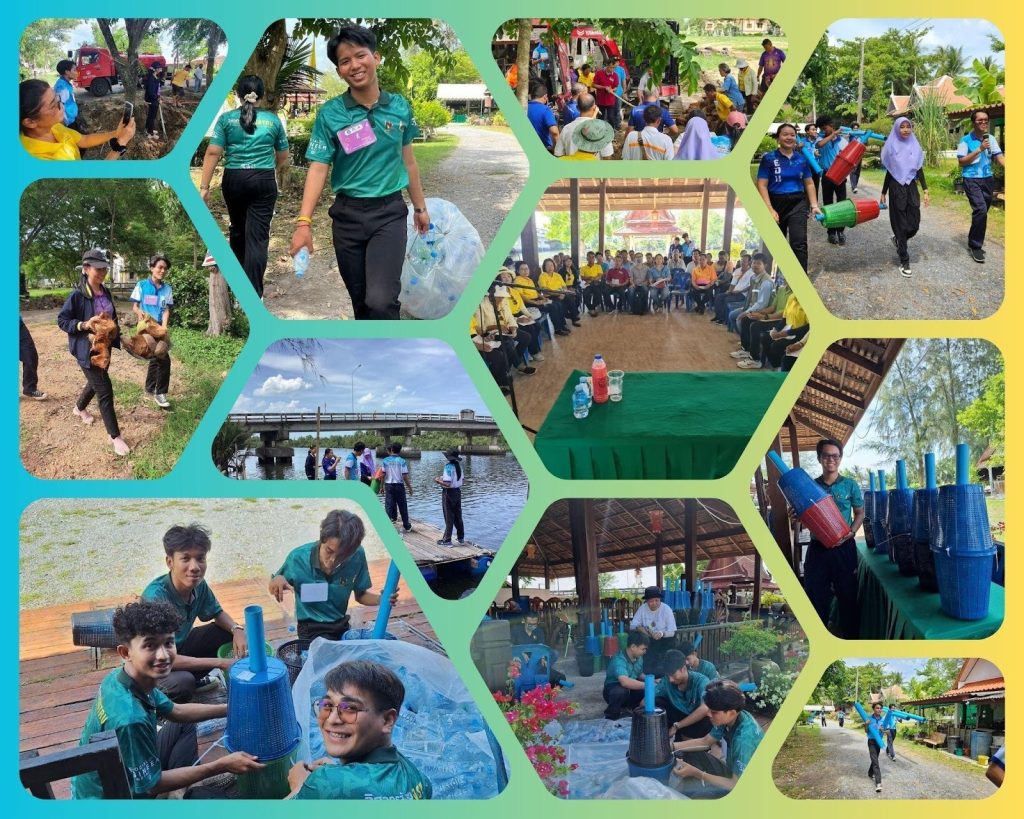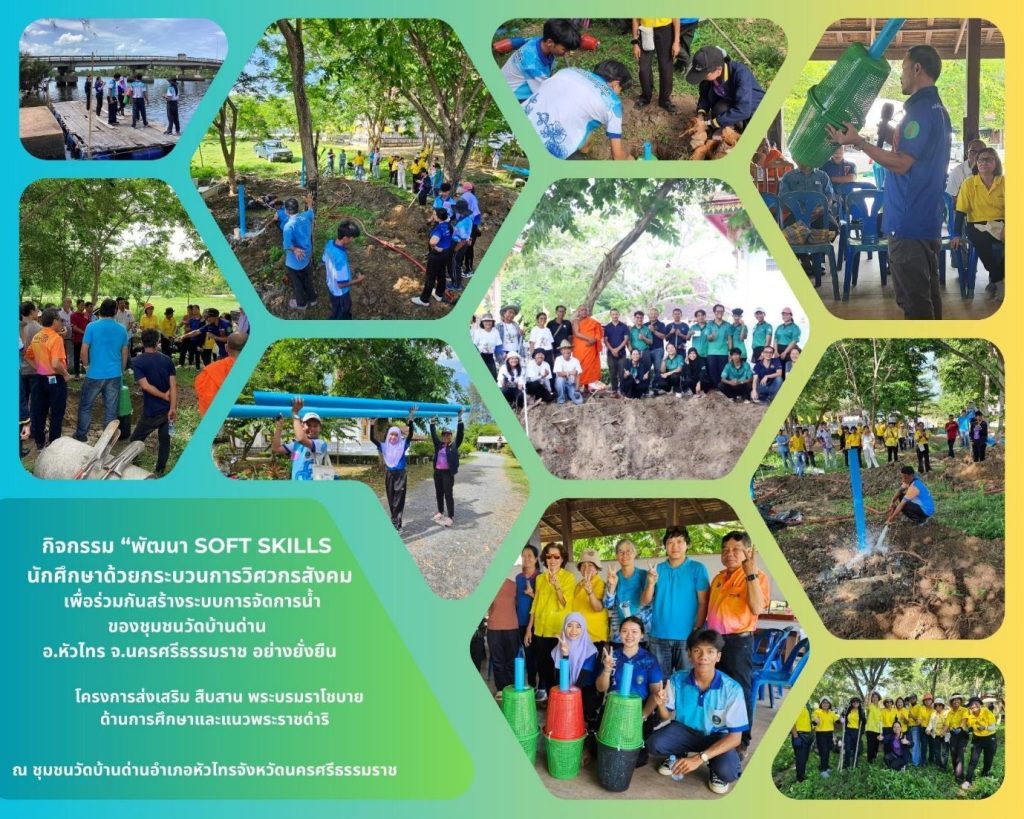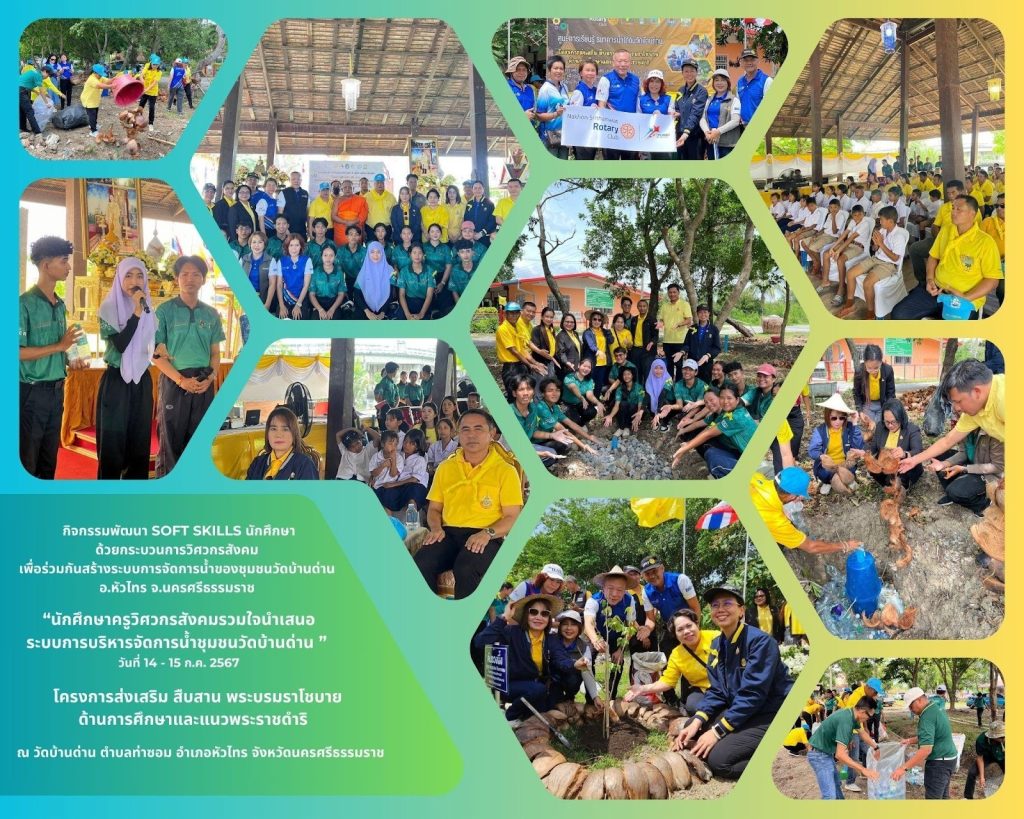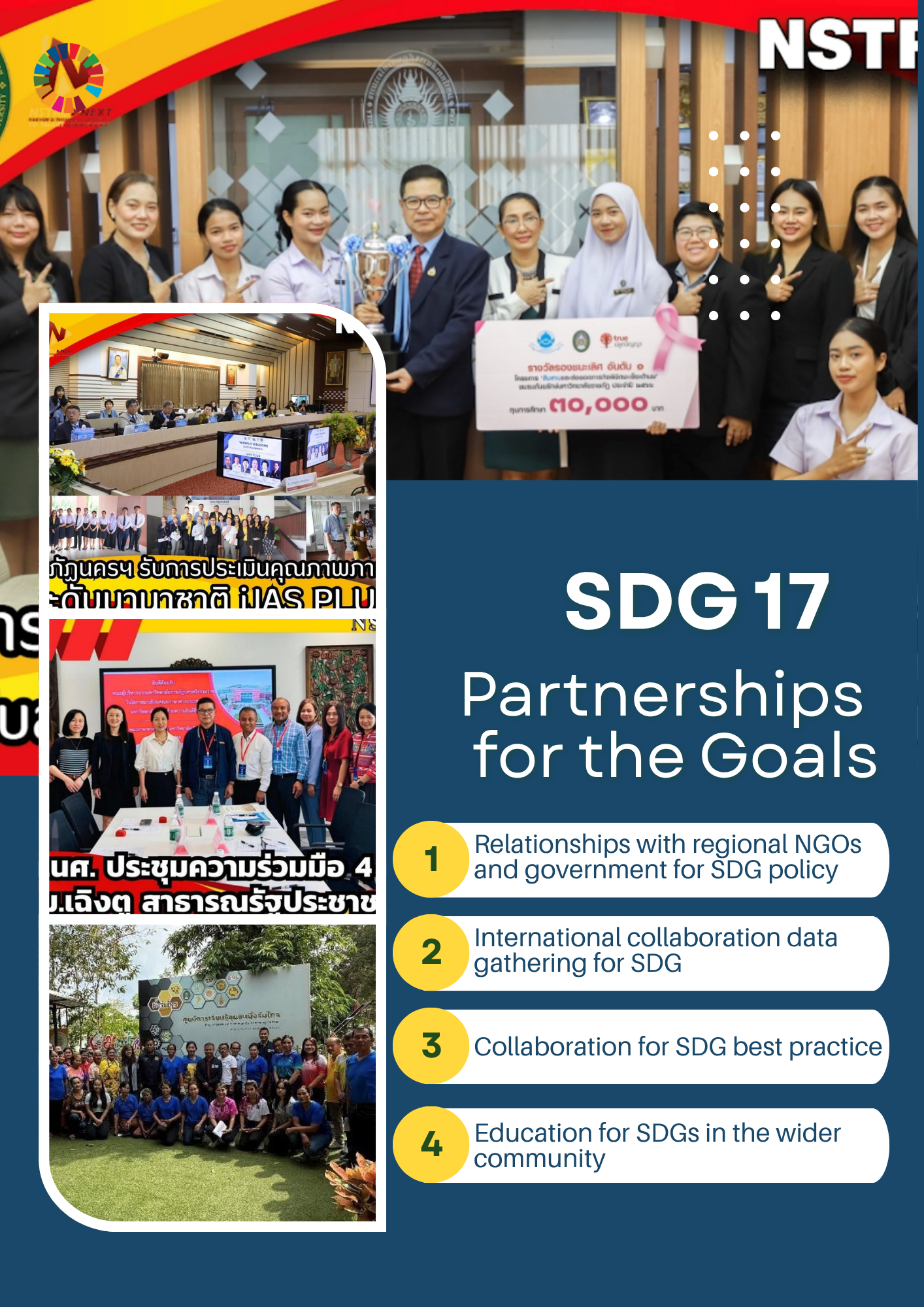Have a commitment to meaningful education around the SDGs across the university, relevant and applicable to all students
Nakhon Si Thammarat Rajabhat University has a clear mission and a distinct commitment to offering “meaningful education” related to the Sustainable Development Goals (SDGs) to its entire student body. The institution focuses on cultivating graduates equipped with the knowledge, understanding, and skills applicable to the sustainable development of society and communities. A central mechanism for advancing the mission is the “Social Engineer” (วิศวกรสังคม) project, an initiative conducted annually that includes students from every faculty and field of study.
The “Social Engineer” project is designed to cultivate student awareness of social and sustainability issues, encouraging their participation in building a better society. The learning process is linked to real-world contexts, involving the observation of local problems, data collection, logical analysis, and the design of innovations that address sustainable development at the community level. The university has designated the activity as a mandatory university-level requirement for all first-year, regular-program students. Participants must complete at least 12 hours under the supervision of academic advisors, which helps establish a foundational understanding and skill set related to the SDGs for every student at the outset of their studies.
The activity is conducted in accordance with the Royal Policy on Education, which aims to provide learners a foundation that includes a proper attitude toward the nation, strong morals and ethics, a stable basis for life, career readiness, and the qualities of a good, disciplined citizen. It also develops four key attributes in students: thinker, communicator, coordinator, and innovator. These qualities represent 21st-century skills and align with the principles of sustainable development. The Student Development Division operates the activity in collaboration with all faculties and university departments, ensuring a systematic, university-wide integration of learning and skill development.
The consistent and comprehensive implementation of the “Social Engineer” project serves as significant evidence of the university’s policy commitment. It demonstrates a dedication to providing meaningful, SDG-related education to every student, without restriction to particular fields of study. All learners receive equal opportunities to develop soft skills and an understanding of sustainability issues, preparing them to apply their knowledge toward solving real community problems. The ultimate outcome is the cultivation of “Sustainability Citizens” who can contribute effectively to the progress of society and the nation.
